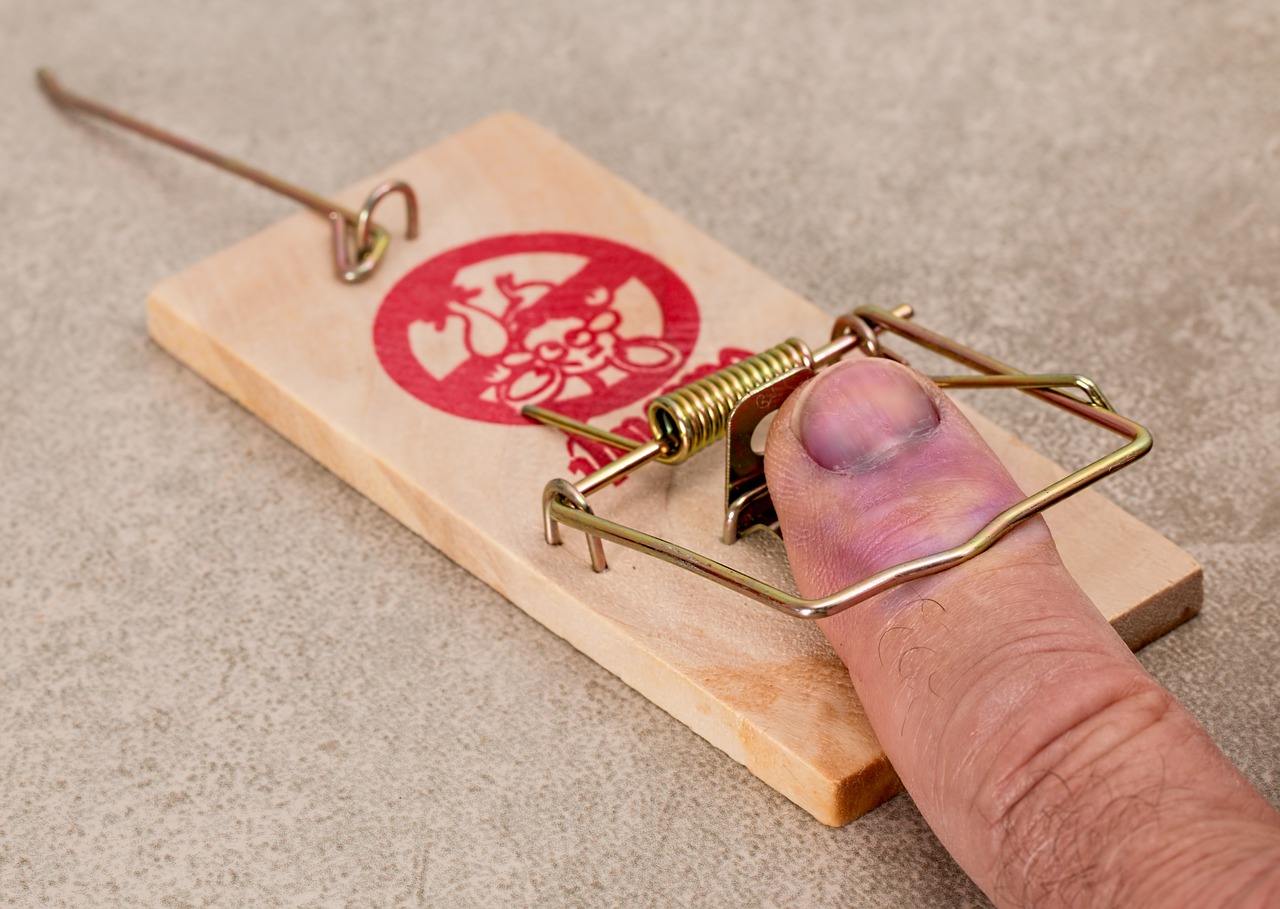Biohacking Your Body: Unlock the Power of DIY Health Optimization. Unlock the secrets for taking control of your health with this revolutionary approach to optimizing your body and mind. Boost your energy, improve your sleep, and get the tools you need to be in your optimal state.
Biohacking Your Body: Unlock the Power of DIY Health Optimization
Biohacking Your Body: The Rise of DIY Health Optimization
We live in a world of fast-paced information, with data and insights at our fingertips with every click of a button. In our increasingly typified world, those seeking to self-improve and optimize their health have naturally looked to technology to help them get the job done. Enter biohacking – the practice of utilizing technology to improve your physical and mental wellbeing. The term refers to experiments conducted by individuals outside of the confines of traditional medicine, with the objective of improving their health, performance, productivity, or lifestyle. What started as a fringe lifestyle trend has rapidly grown in popularity and gained mainstream acceptance – leading to the rise of DIY health optimization.
What is Biohacking?
Biohacking is a process of experimentation for self-improvement purposes. It is a form of self-directed biological experimentation to use and improve methods in order to maximize physical and mental potential. The fundamental goal of biohacking is to optimize energy levels, balance hormones, and increase cognitive performance. Popular methods include diet modifications, sleep tracking, environment adjustments, fitness routines, and lifestyle changes, such as fasting, intermittent fasting, or optimizing nutrient absorption. This is often done in combination with wearable technology, software, and supplements.
Biohacker push the boundaries of traditional science and medicine and create innovative ways to promote health. Simply put, they’re a group of individuals who use technology and data to alter their biological processes in order to optimize their performance and health. They strive to maximize their potential and become the best version of themselves, both mentally and physically.

Types of Biohacking
Biohacking is the process of taking control of your own biology by experimenting with lifestyle changes and using technology to monitor progress. Generally, biohacking falls within one of three categories:
Physical Biohacking
Physical biohacking is about optimizing one’s physical body for improved performance. Examples include optimizing diet, exercise, and sleep regimens, as well as using supplements and technology to measure and track progress. Physical biohackers usually aim to achieve a heightened level of physical fitness and improved mental performance.
Nutritional Biohacking
This type of biohacking focuses on optimizing one’s diet to reap the most health benefits possible from food. It involves understanding the effects of different dietary choices on the body and experimenting with different diets to optimize for health and performance. Common dietary changes that nutritional biohackers might consider include intermittent fasting, removing certain food groups, and adding supplements.
Digital Biohacking
This type of biohacking is centered around the use of technology to collect and analyze data about one’s health and performance. Digital biohackers use advanced technology such as wearables to track progress and identify areas for further improvement. Technology such as smartphones, fitness trackers, and smart scales are all used to measure a variety of health parameters.
The Benefits of Biohacking
There are numerous potential benefits to biohacking. Biohacking encourages individuals to better understand their own physiology, with the ultimate aim of improving health, wellbeing, and performance. Some benefits include:
Optimizing Health and Wellbeing
Biohacking enables individuals to take control of their health and monitor changes in their body as they experiment with different lifestyle modifications. It encourages people to be mindful when making decisions about their health and to focus on improving their wellbeing.
Increased Physical Performance
For those who tend to compete in sports or other physical challenges, biohacking can be incredibly valuable. By tracking various lifestyle and health metrics – including sleep and activity levels – individuals can identify areas to improve in order to increase physical performance.
Increased Mental Performance
Biohacking can also be beneficial in terms of mental performance. By tracking parameters such as sleep, diet, and exercise, individuals can identify areas to provide their brain with the best fuel and environment possible. It can also help to reduce stress levels, which can improve both mental and physical performance.
Heightened Self-Awareness
Biohacking emphasizes the importance of taking responsibility for one’s own health and understanding the effects of different lifestyle choices. It encourages individuals to be mindful of their decisions and to make informed choices based on empirical data. It can help people to gain clarity and a deeper understanding of their own physiology.
The Potential Risks of Biohacking
While there are numerous potential benefits to biohacking, it’s important to consider the potential risks before embarking on a biohacking journey. These risks include:
Health Complications
Biohacking can be dangerous if done improperly and can lead to unexpected health complications. It’s crucial to research any lifestyle modifications or technologies before engaging in them, as well as to speak with a medical professional. It’s also important to be aware of any potential side-effects or risks associated with supplements, as some may interact with medication.

Data Privacy
Biohacking involves collecting, storing, and sharing a considerable amount of personal data. It’s important to be aware of the privacy policies associated with any technology used and to only share data with trusted parties.
Excessive Self-Absorption
Biohacking encourages individuals to focus on monitoring and optimizing their health and performance. While it can be beneficial to an extent, excessively focusing on self-improvement can have a negative impact on one’s mental health. It can also lead individuals to have unrealistic expectations or become obsessed with achieving perfection.
Buying Too Much Gear
It’s easy to be overly ambitious when embarking on a biohacking journey and to invest in a variety of health-related gadgets and technologies. It can be beneficial to start with basic tools before investing too heavily.
The Future of Biohacking
Biohacking is quickly becoming a mainstream trend. As technology advances at an ever-increasing rate, the potential of biohacking is boundless. Individuals are increasingly turning to technology to gain a better understanding of their own body and to optimize performance. Additionally, an increasing number of biohacking-related events, such as conferences and meetups, are being hosted around the world.
The use of advanced technology such as artificial intelligence (AI) is becoming increasingly commonplace in the world of biohacking. AI can be used to collect data, analyze trends, and determine optimum lifestyle choices. It can also be used to create personalized health plans that can be tailored to individual needs.
Biohacking is here to stay and is sure to evolve further in the coming years. As technology continues to advance, wearable devices will become even more sophisticated and individuals will have even greater access to data and knowledge – leading to a rise in DIY health optimization. As biohacking becomes more accessible and accepted, its potential is limitless.
5 Biohacking tips from Dave Asprey to live a long and healthy life
Your Video is here .
Biohacking Your Body: Unlock the Power of DIY Health Optimization
Biohacking Your Body: Unlock the Power of DIY Health Optimization Best Solution For You
How is biohacking?
Biohacking is the practice of optimizing your health and wellbeing through do-it-yourself (DIY) biology. It is an experimental approach to gaining greater control over your own body and mind and utilizing technology and data to upgrade your biology.
What are the goals of biohacking?
The main objectives of biohacking are to live a longer and better life than average, and to achieve peak performance. It also includes discovering your own health and longevity goals, experimenting with different methods and doing your best to make your life exceptional.
What is the difference between biohacking and other forms of health optimization?
The main difference between biohacking and other forms of health optimization is that biohacking focuses on “hacking” the human body, while other forms of health optimization focus on optimizing lifestyle, diet and other factors. Biohacking is more of an experimental approach, while other forms of health optimization focus on providing guidance and strategies to help one achieve certain goals.

Is biohacking safe?
Biohacking is not recommended for everyone, as it can be a risky and potentially dangerous practice. That said, it is possible to take precautions to reduce the risk of injury or side effects from biohacking, such as only experimenting with substances when prescribed by a medical professional, conducting research prior to any experimentation, and always using common sense when making decisions about your health.
What are the advantages of biohacking?
The advantages of biohacking include the potential to extend life, optimize health and improve physical, mental and spiritual performance. By experimenting with different methods and utilizing technology and data, biohackers can potentially make their lives more enjoyable and productive.
What are the disadvantages of biohacking?
The disadvantages of biohacking include the potential risks and side effects associated with experimenting with different substances and methods, as well as the potential to become overly obsessed with a specific goal or outcome. It can also be expensive and time-consuming.
Is biohacking regulated?
Biohacking is largely unregulated, and there are few laws that specifically regulate biohacking activities. That said, biohackers should be aware of any laws or regulations related to the substances and technologies they are experimenting with.
How do I get started with biohacking?
The best way to get started with biohacking is to do your research and familiarize yourself with the different techniques, substances and technologies that are available. It is also important to consult with a medical professional if you are experimenting with any substances, as this will reduce the risk of injury or side effects.
What are some examples of biohacking?
Biohacking includes activities such as altering one’s diet, tracking and manipulating biological processes, using supplements and medications to optimize performance, and utilizing various technology-based tools and devices.
Is biohacking legal?
In most cases, biohacking is legal. However, it is important to check with local laws and regulations regarding the use of any substances or technologies that are employed in biohacking.
Are there ethical concerns with biohacking?
Yes, there are ethical concerns with biohacking. Some of these concerns include safety, in terms of the potential risk of injury or side effects from experimenting with different substances and technologies. There are also ethical issues related to the potential manipulation of biological processes.
How do I find a biohacking community?
You can find a biohacking community by researching online or looking for local meetups. It is also possible to join an online forum or Discord channel, such as the Quantified Self community.
Biohacking Your Body: Unlock the Power of DIY Health Optimization

Where is Biohacking?
Biohacking is the process of using scientific and technological methods to optimize human bodily functions, including health, performance, and lifestyle. While it can be used to describe any type of self-experimentation aimed at improving the body, it is often used in the context of health optimization and life-extension. It has become a popular concept in recent years as the cost of technology for medical and lifestyle optimization decreases and the collective knowledge of DIY health and optimisation increases.
Who is a Biohacker?
A biohacker is someone who takes a proactive role in managing their own health and wellbeing through the application of scientific and technological approaches. From tracking sleep quality to experimenting with dietary approaches, biohackers have one unified goal in mind: to improve their bodies and lives for the better. By self-experimenting, biohackers become well-informed and empowered pioneers in their own health and wellbeing journey.
How Can Biohacking Benefit Your Health?
Biohacking can have significant consequences for overall health and well-being. Through tracking biometrics, optimizing lifestyle factors, and experimenting with different dietary approaches, it is possible to increase energy levels, improve sleep, and optimize cognitive performance. Biohacking can also be used to unlock new insights into personal health which can be used to identify potential deficiencies or diseases in the early stages and take preventative measures. Regular biohackers also report increased energy levels and improved quality of life from using data-driven approaches that are tailored to individual needs.
What Are the Different Types of Biohacking?
Biohacking covers a broad range of activities and practices. Below are some of the most popular approaches:
Nutritional Biohacking:
Nutritional biohacking involves experimenting with different diets, supplements, and exercise regimes that are tailored to the individual’s needs. This type of biohacking is aimed at optimizing performance, sleep quality, and energy.
Mental Biohacking:
Mental biohacking focuses on improving cognitive performance by using different strategies such as meditation, breathing exercises, journaling, and lifestyle modifications.
Quantified Self:
The quantified self is a process of tracking and understanding biometrics such as heart rate, blood pressure, sleep patterns, and lifestyle to find insights into one’s own health and well-being.
Lifestyle Biohacking:
Lifestyle biohacking focuses on modifying lifestyle factors such as sleep patterns, working environment, exercise, and hydration to improve overall health and well-being.
DIYbiohacking:
DIYbiohacking involves experimenting with more advanced biohacks such as genetic engineering, implantables, and medical interventions.
What Tools Are Used for Biohacking?
There are many tools available that can be used for biohacking. These include wearable devices that can track biometrics, medical-grade devices that are used to measure hormones such as cortisol and testosterone, software applications that can monitor nutrient, mood, and lifestyle factors, and various DIYbiohacking kits.
Are There Any Risks Associated with Biohacking?
Biohacking can be risky if done improperly. The use of DIYbiohacking tools can be particularly risky, as they are not regulated and could potentially lead to unintended side-effects. It is also important to note that any biohack or biometrics data collected should be used cautiously and any medical decisions should be discussed with qualified healthcare professionals.
Conclusion
Biohacking is a powerful tool for anyone looking to optimize their health and wellbeing. While it can be a source of great insight, it is important to be careful when experimenting with biohacks and to seek guidance from qualified medical professionals if in doubt. With the availability of technology and collective DIY health knowledge on the rise, biohacking is an exciting field of science that has the potential to revolutionize the way we approach health and wellbeing.
